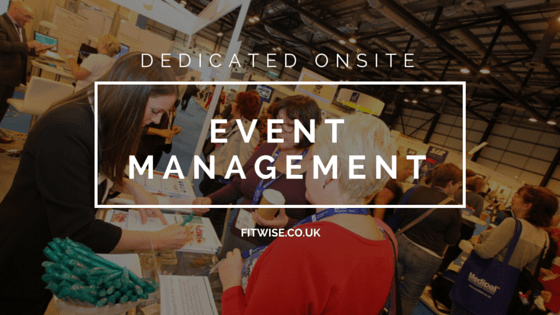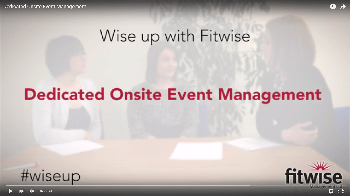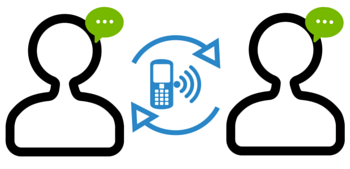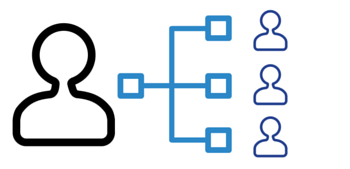
This is our third video to our series “Wise up with Fitwise”. To view all our videos visit our YouTube channel or video page of our website.
Dedicated Onsite Event Management
To view the video CLICK HERE
To view the infographic CLICK HERE

Choosing the right onsite team for your conference will create a successful event on the day.

Here are some tips to creating a dedicated onsite event team.
1. Your Team
Your onsite team can be made up of people in your organisation or contracted help from an agency. There are agencies UK wide that will supply help for the day for tasks such as registration desk, stewarding, AV support etc. The size of the conference will determine the right amount of team members for the day. Make sure you consider all roles that might be needed and how much time they will take to complete.

2. Team Abilities
When it comes to your own team, there are a couple things to take into consideration. Firstly, the availability and role strengths of each team member is vital to the organisation and smooth running of the conference on the day. You also want to determine which team member is most familiar with the event. Key roles of your onsite team include:
- Event Manager: this person oversees the whole event. See below
- Speaker Liaison: Major part of conference and should be focused on quite highly.
- Delegate Registration
- Poster Management

3. Before Venue Arrival
Before you arrive at the venue, there are a few things to put into place including:
- Final catering numbers
- Room layouts (theatre style or cabaret or board room)
- Special equipment (AV)
- Arrival and departing times

Make sure the venue knows if anything, such as equipment, is being sent to the venue in advance or if there are any other special requirements that are unique to your event.
4. Key roles of an event manager onsite
The event manager’s key role onsite is to ensure the overall smooth running of the conference and that the client is happy at all times.

5. Engaging with the client
It is important to engage with the client and to let them know where you will be at all times, by way of a contact number or radio. At break times, ask if the client is happy and that everything is going well.

6. Allocating duties
It is also the role of the event manager to allocate duties to members of the event team and to make sure they are happy and if they have any questions. At smaller events, the event manager will take on many other roles including dealing with delegates, speakers, and venue.

7. Checking with the venue
It is essential that the event manager makes sure the venue has all timings, requirements in place, and catering, and to ask what the fire procedure is on that day and if there is anything else going on in the venue that might impact on your event. The chair running the event should also know these details so they can relay it to the delegates.

8. Debriefing the client
And finally, upon arrival at the site, a run through with the venue is important for the smooth running of the day and at the end. A debrief with the client will help make sure they are happy with how the event went and if they aren’t, a discussion on which aspects need some improvement for the following years conference.

